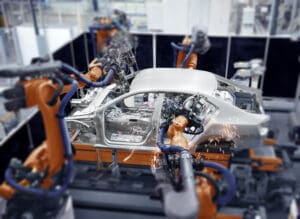
How the Business of Las Vegas as the Entertainment Capital of the World is Rapidly Changing
Las Vegas in the US state of Nevada has long hailed itself as the entertainment capital of the world. Seeing what’s on offer on the famous Strip alone, it was always tough to argue with the claim.
Colossal casinos, a never-ending schedule of live acts, world-famous musicians putting on shows, a dizzying array of eateries, and a whole bunch of other novel activities certainly made the case for Sin City.
All of this is still very much in play in Las Vegas, but the approach of businesses has had to change rapidly. Amidst falling revenues, some of the biggest hotel and entertainment companies in the US have sought new ways to draw in visitors. After all, the rise of Macao has siphoned a huge chunk of Asian gaming revenue, with the former Portuguese colony now raking in over $1 billion more than Nevada each month.
So, where has Las Vegas retained its appeal, and how are businesses changing to adapt to the new state of play?
An Iconic Destination and Branding Colossus
The average tourist from overseas may only be able to name a handful of casinos, such as the Bellagio and Caesars Palace, but they know Las Vegas as a whole is the go-to hub for bombastic entertainment in the US. Helping this is the still-prestigious Las Vegas residency. Made huge by Canadian songstress Celine Dion, global stars with their multi-million online followings will put on a series of shows in the city and advertise them heavily to fans.
In September 2025 alone, Bruno Mars, The Eagles, Janet Jackson, Pitbull, and Rod Stewart will be performing across The Strip for multiple shows. It’s a superb advertisement for the city, and there’s always news about more massive acts jumping into the action. Metallica, for example, were most recently reportedly in talks to take up a Las Vegas Sphere residency. The iconic metal band boasts over 36 million followers on Facebook alone.
However, where Las Vegas remains its most prominent is in the arena of what’s historically been its biggest selling point: casino gaming. This goes from the instantly recognisable venues to much newer corners of the entertainment medium. Online, when you play classic slots, six of the 18 are explicitly Vegas-themed slots. From there, many clearly draw from the famous city, like Route 777, showcasing the continued prominence of Sin City.
Adapting to a Changing World
Being so reliant on tourism, Las Vegas has long been subject to the changes in preference of the general public and global forces. Right now, two of the biggest issues causing Las Vegas businesses headaches come from the White House. Nevada has been greatly impacted by the immigration crackdown. The state’s workforce was 25 per cent immigrant, while in the US overall, only 17 per cent have immigrated to the country.
There’s also the changing persona of the US to people from overseas. Canada has been the subject of many a contentious social media post over the last year. According to airport figures recorded at Harry Reid Airport, Air Canada flights are down five per cent year-on-year, and budget flights from Flair have nosedived by 55 per cent. So, the Las Vegas business model needs to adapt.
Behind the scenes, all major hotel and casino resorts on The Strip have allowed for worker unionisation, helping to bolster the perception of these businesses greatly. Further, the city has sought to embrace the potential revenue, draw, and advertisements offered by professional sports. In October 2024, the Tropicana was levelled to make way for a baseball stadium. This follows the initial arrival of the NHL in 2017, followed by the NFL, and then the annual Las Vegas GP street race that’s now on the Formula One calendar.
Las Vegas is still iconic in gambling circles and still offers any and all tourists a tremendous number of activities at its array of world-class venues. Still, changes beyond the city’s control have forced businesses to explore new avenues of appeal.



